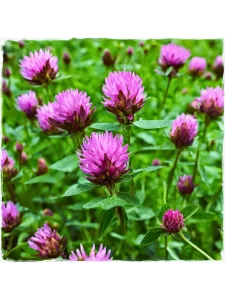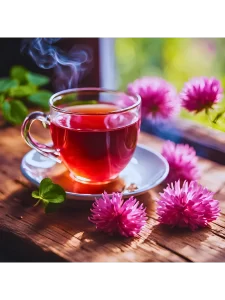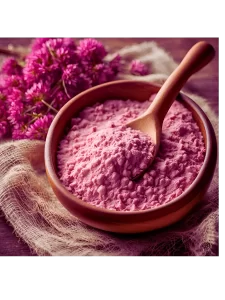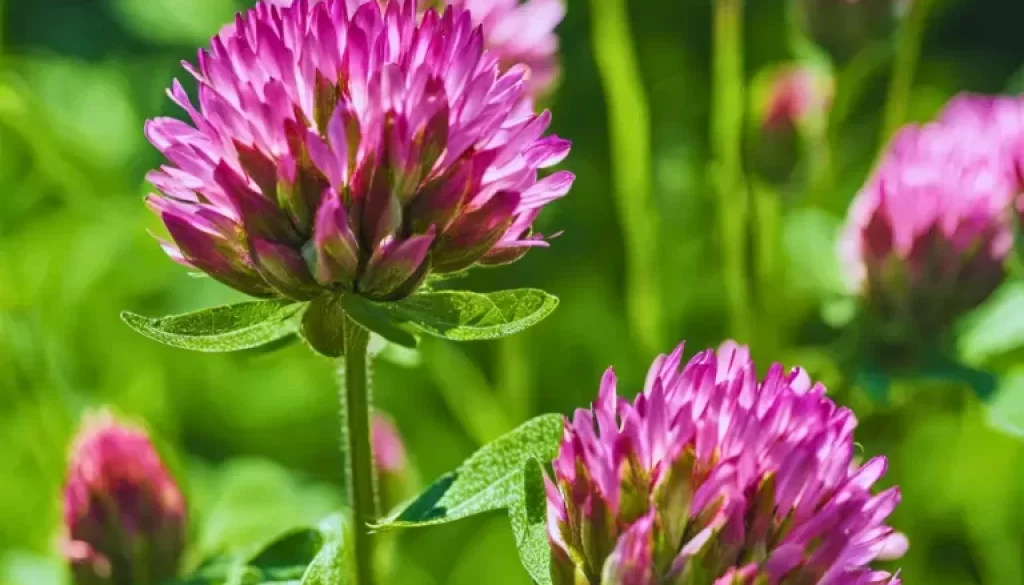The Incredible Benefits of Red Clover: Nature’s Remedy for Menopause, Perimenopause, Hormonal Health, and Beyond
In a world where wellness solutions often involve complex treatments, there’s a renewed interest in simpler, natural remedies that offer gentle yet effective support. Red clover is one such powerful ally—valued not only for its vibrant pinkish-purple beauty but also for its deep roots in herbal medicine. This article dives into red clover’s many potential benefits, especially for women experiencing menopause and hormonal fluctuations, while also introducing how you can easily incorporate it into your daily life. Alongside exploring red clover’s uses, we’ll also look at its role in holistic health, answering common questions about natural alternatives to modern medicines.
Essentials for Exploring Red Clover
Ready to start your journey with red clover? Here are some essentials to make your experience enjoyable and effective:
- Dried Red Clover Flowers – Available in health stores or online
- Tea Infuser or Strainer – Essential for brewing red clover tea
- Metal Jar – Ideal for storing dried flowers
- Disposable Tea Bags – For convenient brewing
- Lavender – Optional, for a relaxing effect
- Honey – To sweeten your tea naturally
- Almond or Coconut Flour – For baking with red clover
- Notebook – To record observations and recipes
- Recipes – Gather a few simple recipes incorporating red clover flour
Please Note: This post contains affiliate links, which means I may earn a commission if you make a purchase through these links. Your support helps keep this content free. Thank you for your understanding and support!
What is Red Clover?
Red clover, or Trifolium pratense, is part of the legume family, sharing roots with lentils and beans. This perennial herb is easily recognized by its beautiful pinkish-purple flowers, prized not only for their appearance but also for their health-boosting compounds like phytoestrogens, isoflavones, vitamins, and minerals.
The Rich Nutritional Profile of Red Clover
Red clover’s nutrients are behind its powerful health benefits:
- Isoflavones – Plant-based compounds that mimic estrogen, beneficial during menopause.
- Vitamins – Includes vitamin C and several B vitamins, supporting immunity and energy.
- Minerals – Contains calcium, magnesium, and potassium for bone and heart health.
- Antioxidants – Helps combat oxidative stress, reducing signs of aging.
Benefits of Red Clover
- Alleviating Menopausal Symptoms
Red clover is well-regarded for alleviating menopause symptoms, such as: - Hot Flashes – Isoflavones in red clover have been shown to reduce both frequency and intensity.
- Night Sweats – By supporting hormonal balance, red clover can minimize night sweats and improve sleep quality.
- Anti-Aging Properties
The antioxidants in red clover combat free radicals, reducing signs of aging on the skin. While it’s popular in skincare, you can reap its anti-aging benefits by drinking tea or taking supplements. - Supporting Bone Health
For post-menopausal women, maintaining bone density is critical. Red clover may support bone density due to its phytoestrogens, which can be beneficial in reducing osteoporosis risks. - Lowering Cholesterol
Some studies suggest that regular red clover consumption may help balance cholesterol levels by lowering LDL (bad) cholesterol and increasing HDL (good) cholesterol. - Natural Diuretic
Red clover has natural diuretic properties, assisting the body in expelling excess fluid and toxins, which can benefit individuals experiencing water retention. - Supporting Prostate Health
Red clover can also benefit men. Research suggests it may support prostate health and alleviate symptoms associated with prostate enlargement. - Anti-Cancer Properties
Early studies suggest the isoflavones in red clover may help lower the risk of certain cancers, including breast and prostate cancer. However, more research is needed in this area.
How to Use Red Clover
Herbal Tea
 One of the simplest ways to enjoy red clover is by making it into tea:
One of the simplest ways to enjoy red clover is by making it into tea:
-
- Ingredients:
- 1–2 teaspoons dried red clover flowers
- 1 teaspoon lavender
- 1 cup boiling water
- Instructions:
- Place dried flowers in a tea infuser or directly in a cup.
- Pour boiling water over the flowers; let steep for 10–15 minutes.
- Strain and enjoy hot or iced.
- Ingredients:
Red Clover Flour
Red clover can be ground into a fine flour, which you can use in baking. This flour is nutritious and can replace regular flour in many recipes:
- Baking Mix – Replace up to 25% of the flour in your favorite recipes with red clover flour for a nutritional boost.
Tips for Growing Red Clover
For a fresh supply of red clover, you may consider growing it at home. Here are a few tips:
- Soil – Red clover thrives in well-draining soil.
- Sunlight – Prefers full sun but tolerates partial shade.
- Watering – Keep soil moist but not soggy.
- Harvesting – Flowers can be picked when they are in full bloom.
Frequently Asked Questions (FAQs)
- Is red clover safe to use?
Yes, red clover is generally safe. However, consult a healthcare professional, especially if you’re pregnant, nursing, or on medication. - How long does it take for red clover to work?
Results vary, with some users reporting benefits within a few weeks. Individual responses may differ. - Can red clover help with anxiety?
Some users find red clover calming, but further research is needed to confirm this effect. - Is red clover suitable for men?
Absolutely. Red clover can benefit men’s health, particularly regarding prostate health and cardiovascular wellness.
People Also Asked
- What is the best way to take red clover?
Red clover can be enjoyed as tea, in capsules, or incorporated into baked goods as flour. - Are there any side effects of red clover?
While rare, some individuals may experience mild side effects such as headaches or stomach issues. Consult a healthcare provider if you have concerns. - Can I use red clover with other supplements?
Generally, yes, but check with a healthcare provider to avoid potential interactions. - How much red clover should I take daily?
Typically, 1–2 cups of tea or 40–160 mg of red clover extract is recommended. Start small and adjust as needed.
Incorporating red clover into your wellness routine can offer a wealth of benefits, especially for those dealing with hormonal changes during menopause. Whether you choose to enjoy it as a tea or use it as a flour alternative, red clover’s medicinal properties make it a valuable addition to your health journey.
Disclaimer: We are not medical experts. Always consult your doctor for personalized health advice.
Have you tried red clover for menopause or other health issues? Share your experiences and recipes with us. Let’s learn together and make wellness a shared journey!
Want more Red Clover Recipes?
Powered by EmailOctopus

Sign up to the newsletter
Powered by EmailOctopus




